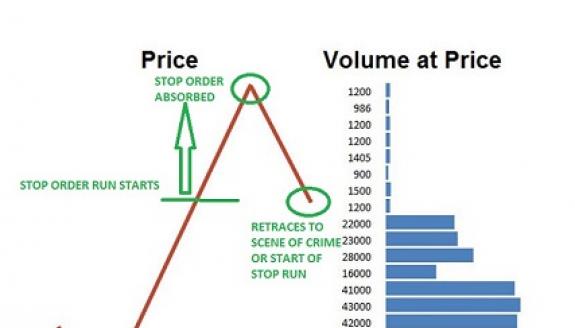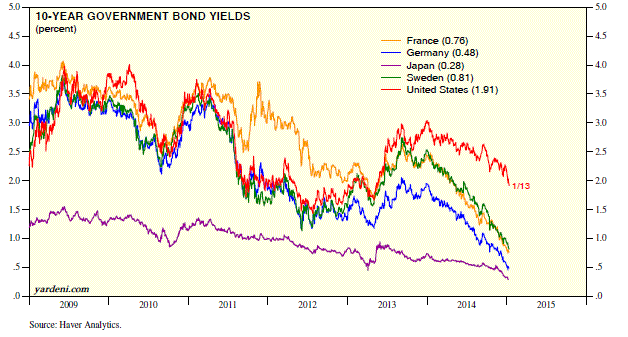
Even though you don’t need to know everything about blue chip stocks to invest, it’s important to do your research before you purchase. Look at the earnings reports and company history as well as whether dividends will be paid. You may also consider consulting an investment advisor. You should also consider the industry where the company operates. Some industries have more potential for growth than others. It is possible to invest in companies with the potential to pivot to new products or services.
Low-cost index funds
Low-cost index funds are pooled investments that charge lower annual management fees and expense ratios. Investors can make superior returns by reducing investment costs. This type of investing does not require active stock analysis or trading. Instead, investors choose to invest in an index funds, which track the performance and trends of specific stocks.
Investors who are looking to purchase stocks but don't want to pay high fees for their investments will find low-cost index funds the best option. These funds not only offer low costs but also diversification and lower risk. There are many low-cost funds available from the top fund providers. Like any type of investing, it is important to do extensive research before investing.

Exchange-traded funds
ETFs, or exchange-traded funds, have been proven to be a good way to invest into blue-chip businesses. These funds track the performance of blue-chip stocks on a daily basis. These funds also have the added benefit that they reduce the risk associated with investing in individual stocks.
ETFs have lower costs than mutual funds and are more passively managed. However, if you are investing in a mutual fund, you should research which stocks the fund holds, as some are more volatile than others. Blue chip stocks tend to pay regular dividends, which is a major benefit for investors. Blue-chip stocks are more secure and reliable than other stock types.
Individual stocks
Buying blue chip stocks is an excellent option for achieving long-term investment goals. These stocks are relatively stable with a history of consistent and steady growth. But any company can still be subject to economic pressures and market downturns. Long-term investment success is not possible through blue chip investing. You must also understand the risks associated with buying individual stocks. This is why it can take some time and research.
Retail investors like blue chip companies. They have a strong track record in every sector and are often leaders of their particular industry. These companies create products and services we use daily. These companies are very popular with investors of all skill levels. Some investors prefer to purchase individual stocks while others prefer ETFs that track a blue-chip index.

Companies in a dominant position of their industry
Blue chip investing is a great way to invest. Blue-chip companies have a track record of long-term success. They also rarely cut dividends. They have high market capitalizations, stable debt-to equity ratios, and a high level of market capitalization. Blue chip companies are the most consistent and reliable.
While blue chip stocks can be expensive, they are often a good investment for long-term growth. They are also considered a safe haven asset. They are a large sector of stock exchanges all over the world. You can either invest in individual blue chip shares, or in a bluechip fund.
FAQ
What is the trading of securities?
The stock market is an exchange where investors buy shares of companies for money. Companies issue shares to raise capital by selling them to investors. Investors then resell these shares to the company when they want to gain from the company's assets.
Supply and Demand determine the price at which stocks trade in open market. When there are fewer buyers than sellers, the price goes up; when there are more buyers than sellers, the prices go down.
There are two ways to trade stocks.
-
Directly from company
-
Through a broker
Who can trade in stock markets?
Everyone. But not all people are equal in this world. Some have better skills and knowledge than others. So they should be rewarded.
However, there are other factors that can determine whether or not a person succeeds in trading stocks. You won't be able make any decisions based upon financial reports if you don’t know how to read them.
So you need to learn how to read these reports. It is important to understand the meaning of each number. You must also be able to correctly interpret the numbers.
You'll see patterns and trends in your data if you do this. This will help to determine when you should buy or sell shares.
You might even make some money if you are fortunate enough.
How does the stock markets work?
When you buy a share of stock, you are buying ownership rights to part of the company. The company has some rights that a shareholder can exercise. He/she can vote on major policies and resolutions. He/she can demand compensation for damages caused by the company. He/she may also sue for breach of contract.
A company cannot issue any more shares than its total assets, minus liabilities. This is called capital adequacy.
A company that has a high capital ratio is considered safe. Companies with low ratios of capital adequacy are more risky.
What are the benefits to investing through a mutual funds?
-
Low cost - Buying shares directly from a company can be expensive. It is cheaper to buy shares via a mutual fund.
-
Diversification – Most mutual funds are made up of a number of securities. One security's value will decrease and others will go up.
-
Professional management - professional managers make sure that the fund invests only in those securities that are appropriate for its objectives.
-
Liquidity: Mutual funds allow you to have instant access cash. You can withdraw your money at any time.
-
Tax efficiency - Mutual funds are tax efficient. So, your capital gains and losses are not a concern until you sell the shares.
-
Purchase and sale of shares come with no transaction charges or commissions.
-
Mutual funds are simple to use. You will need a bank accounts and some cash.
-
Flexibility - You can modify your holdings as many times as you wish without paying additional fees.
-
Access to information – You can access the fund's activities and monitor its performance.
-
Ask questions and get answers from fund managers about investment advice.
-
Security – You can see exactly what level of security you hold.
-
Control - You can have full control over the investment decisions made by the fund.
-
Portfolio tracking – You can track the performance and evolution of your portfolio over time.
-
Easy withdrawal - it is easy to withdraw funds.
Disadvantages of investing through mutual funds:
-
Limited investment opportunities - mutual funds may not offer all investment opportunities.
-
High expense ratio - the expenses associated with owning a share of a mutual fund include brokerage charges, administrative fees, and operating expenses. These expenses can impact your return.
-
Lack of liquidity - many mutual funds do not accept deposits. They must be bought using cash. This limit the amount of money that you can invest.
-
Poor customer service. There is no one point that customers can contact to report problems with mutual funds. Instead, you must deal with the fund's salespeople, brokers, and administrators.
-
Ridiculous - If the fund is insolvent, you may lose everything.
What's the difference among marketable and unmarketable securities, exactly?
Non-marketable securities are less liquid, have lower trading volumes and incur higher transaction costs. Marketable securities, however, can be traded on an exchange and offer greater liquidity and trading volume. They also offer better price discovery mechanisms as they trade at all times. This rule is not perfect. There are however many exceptions. There are exceptions to this rule, such as mutual funds that are only available for institutional investors and do not trade on public exchanges.
Marketable securities are less risky than those that are not marketable. They are generally lower yielding and require higher initial capital deposits. Marketable securities tend to be safer and easier than non-marketable securities.
For example, a bond issued by a large corporation has a much higher chance of repaying than a bond issued by a small business. The reason is that the former will likely have a strong financial position, while the latter may not.
Investment companies prefer to hold marketable securities because they can earn higher portfolio returns.
Statistics
- The S&P 500 has grown about 10.5% per year since its establishment in the 1920s. (investopedia.com)
- For instance, an individual or entity that owns 100,000 shares of a company with one million outstanding shares would have a 10% ownership stake. (investopedia.com)
- Individuals with very limited financial experience are either terrified by horror stories of average investors losing 50% of their portfolio value or are beguiled by "hot tips" that bear the promise of huge rewards but seldom pay off. (investopedia.com)
- Ratchet down that 10% if you don't yet have a healthy emergency fund and 10% to 15% of your income funneled into a retirement savings account. (nerdwallet.com)
External Links
How To
How to trade in the Stock Market
Stock trading refers to the act of buying and selling stocks or bonds, commodities, currencies, derivatives, and other securities. The word "trading" comes from the French term traiteur (someone who buys and sells). Traders trade securities to make money. They do this by buying and selling them. It is one of oldest forms of financial investing.
There are many options for investing in the stock market. There are three basic types: active, passive and hybrid. Passive investors simply watch their investments grow. Actively traded traders try to find winning companies and earn money. Hybrid investors combine both of these approaches.
Passive investing can be done by index funds that track large indices like S&P 500 and Dow Jones Industrial Average. This type of investing is very popular as it allows you the opportunity to reap the benefits and not have to worry about the risks. You can simply relax and let the investments work for yourself.
Active investing is about picking specific companies to analyze their performance. Active investors will look at things such as earnings growth, return on equity, debt ratios, P/E ratio, cash flow, book value, dividend payout, management team, share price history, etc. Then they decide whether to purchase shares in the company or not. If they feel that the company's value is low, they will buy shares hoping that it goes up. On the other side, if the company is valued too high, they will wait until it drops before buying shares.
Hybrid investment combines elements of active and passive investing. A fund may track many stocks. However, you may also choose to invest in several companies. This would mean that you would split your portfolio between a passively managed and active fund.